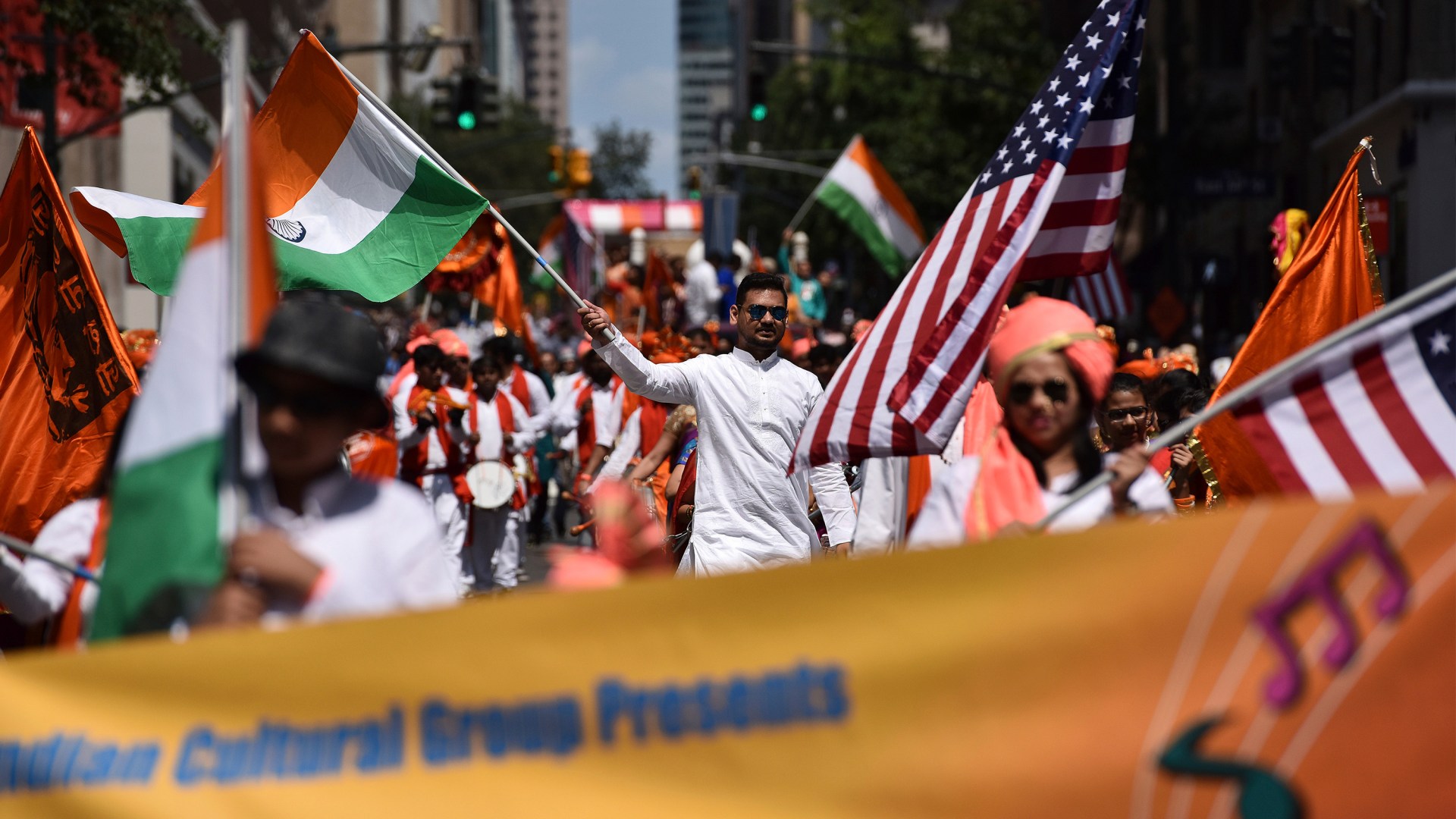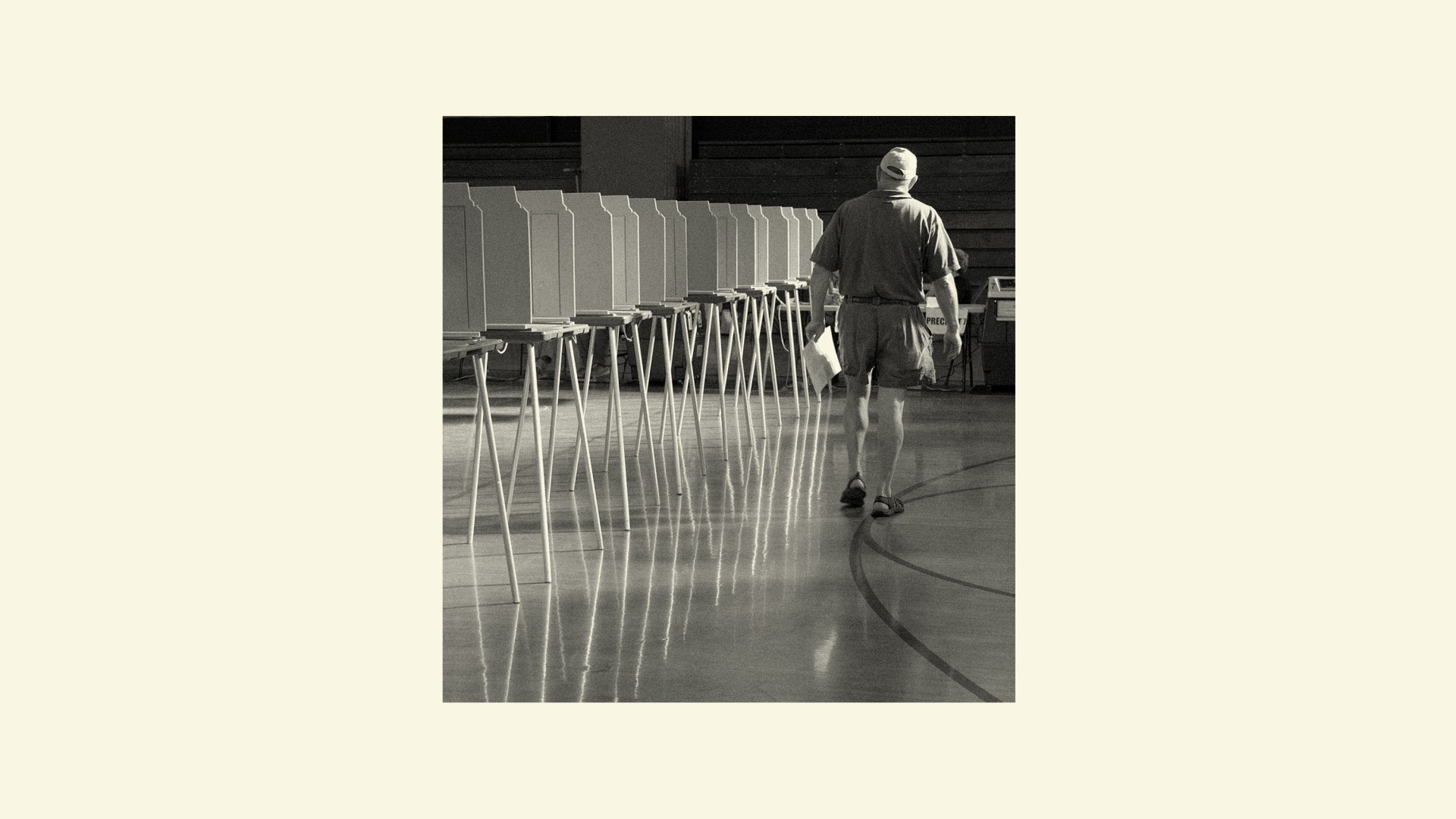Gustavo Gutiérrez Merino, the father of liberation theology and Catholic theologian who first argued for a “preferential option for the poor,” died on October 23 at the age of 96.
The Peruvian priest’s ministry was heavily influenced by the injustices he observed in his country. For years, under the hacienda system, just 2 percent of Peruvians controlled 90 percent of the land, while sharecroppers earned pennies farming it and laborers worked in slave-like conditions on the estates.
In 1968, a coup tried to end this arrangement and empower peasant workers. But the many people left behind by these reforms soon left the haciendas, relocating to impoverished settlements outside Lima.
Moved by this suffering, Gutiérrez, a member of the Dominican order, published his most influential book, A Theology of Liberation: History, Politics, Salvation, in 1971, arguing that genuine liberation unfolds in three essential dimensions. First, political and social liberation addresses and eliminates the immediate causes of poverty and injustice. Second, the poor, marginalized, and oppressed are freed from conditions that limit their capacity for dignified self-development. Third, these communities are liberated from selfishness and sin and can now restore broken relationships with God and others.
When priests began embracing liberation theology across Latin America, the Vatican pushed back, criticizing its seemingly Marxist influence and reduction of Jesus’ status of divine savior to that of social liberator. However, unlike other advocates of liberation theology, Gutiérrez was never sanctioned by the Catholic hierarchy.
Though Latin America was still overwhelmingly Catholic in the early days of Gutiérrez’s ministry, many of the region’s earliest evangelical leaders came of age wrestling with similar questions. These ideas led fellow Peruvians like Samuel Escobar and Pedro Arana and Ecuadorian René Padilla to develop misión integral or integral mission, which sought to balance Christian responsibility to share about Christ’s saving work with a duty to respond to social inequities.
CT asked evangelicals familiar with the life and work of Gustavo Gutiérrez to share how liberation theology affected Latin American evangelical theology, practice and growth. Answers were edited for clarity and concision.
This piece will be updated.
David Kirkpatrick
Author, A Gospel for the Poor: Global Social Christianity and the Latin American Evangelical Left, United States
Gustavo Gutiérrez gave voice to an entire generation of Latin American theologians wrestling with questions of violence, injustice, and inequality in a Cold War context. His urging of a critical reexamination of traditional approaches to Scripture and call to amplify the voices of the poor had an immense impact on his generation of Latin American theologians, which included many prominent Catholic and Protestant figures such as Pope Francis and Methodist theologian José Míguez Bonino.
In 1973, René Padilla wrote the first article dedicated to liberation theology to appear in Christianity Today. Padilla, alongside many evangelicals, disagreed with Gutiérrez’s approach, which Padilla called a “straitjacket” on the Bible. “No attempt is ever made to show why this specific praxis (rather than any other) is chosen as the object of reflection, or to show what makes this reflection specifically Christian,” Padilla wrote. But he also refused to allow critiques of liberation theology to silence prophetic calls for justice. Many Latin American Protestant evangelicals agreed that an unjust postwar context called for new approaches to faith and practice.
In response to the English version of A Theology of Liberation, which was released in 1973, Padilla argued, “The need for a liberation of theology is then as real in our case as in the case of the theology of liberation.” Padilla’s answer was misión integral, a holistic approach to Christian mission that synthesizes the pursuit of justice and the offer of salvation, rather than joining the growing movement of liberation theology.
But Padilla concluded his CT article by asking a question that would define his life and work: “Where is the evangelical theology that will propose a solution with the same eloquence [as Gutiérrez] but also with a firmer basis in the Word of God?” Gutiérrez inspired an entire generation of Latin American Protestant evangelical theologians to continue their search for and theological construction of a truly Latin American theology of justice and mission.
Valdir Steuernagel
Pastor and theologian, Brazil
I never had the privilege to meet Gustavo Gutiérrez, even though his name was around me since the 1970s. Once I heard that he died, I found his book We Drink from Our Own Wells: The Spiritual Journey of a People in my library. As I opened it, the very first words touched me deeply: “To follow Jesus defines a Christian.” I smiled, because this is exactly what I would like to say too.
I come from another school of theology, but I share Gutiérrez’s recognition that context is important in the process of doing theology and that our context was Latin America. His being Peruvian affected how he thought and lived out his faith, which was always rooted in his confessional environment. Similarly, I am Brazilian and this is the location in which I encountered the gospel, and where I have had the privilege of living out my vocation.
My identity has also been shaped by an evangelical confessionality, which has been nurtured within the circles of the Latin American Theological Fraternity. But we were moved by Gutiérez’s conviction that theology had to move from the “libraries” to the “communities.” Our faith had to reach the most vulnerable people in our societies. With Gutiérrez, we were challenged to look at the “underside of history,” the communities so often hidden by the “victorious” narratives of history or who had become the “underside” precisely because of those victors.
I can still hear some of the conversations and arguments [among Catholic followers of liberation theology and evangelicals who defend integral mission] that pointed to the differences in our respective theologies. And I also see Gutiérrez’s commitment to his God-given calling and his long and deep sense of belonging [within the Catholic Church], in which the poor and the most vulnerable had a special place, a place where they were embraced by a God of love and justice.
Ruth Padilla DeBorst
Professor, Comunidad de Estudios Teológicos Interdisciplinarios and Western Theological Seminary, Colombia/United States
It is impossible to conceive of theological work in the effervescent Latin America of the mid-20th century and the beginning of the 21st century without acknowledging the generous contribution of Gustavo Gutiérrez. Although this Peruvian priest and most of his liberationist colleagues were primarily developing their theology for and within the Catholic Church, it nevertheless influenced evangelical thought.
The integral mission movement developed at the same time in the evangelical student movements and the Latin American Theological Fraternity. In 1972, René Padilla and Samuel Escobar met with several liberation theologians and interacted diligently with their writing, and they later spoke of how this experience had valuably challenged their hermeneutics and how they understood the ethical praxis of the Christian faith. Those who identify themselves as evangelicals today would do well to look with appreciation at the legacy of this giant of theology, not only in Latin America but worldwide.
Harold Segura
Pastor and director for Faith and Development of World Vision Latin America, Colombia/Costa Rica
Liberation theology emerged in Latin America in the 1960s and 1970s with theologians such as Gustavo Gutiérrez (to whom today we bid farewell with gratitude and admiration), who presented the idea of a Christianity committed to the most vulnerable and excluded people. This theology placed the reality of poverty and injustice at the center of Christian reflection, affirming that the gospel should lead not only to spiritual salvation but also to social transformation.
For many evangelicals, this approach was a challenge. Most evangelical churches had focused their message on personal salvation, prioritizing conversion and spiritual life. Liberation theology, with its emphasis on social justice and its dialogue with the social sciences, was viewed with skepticism. Many considered it a political deviation that threatened the purity of the gospel.
However, not everyone rejected it. Some evangelical movements began to reflect on their own role in society and took a more active stance in the face of injustice. This theology had an undeniable influence on what, around the same time, began to be known as integral mission–a vision of the gospel that seeks not only the salvation of the soul but also the welfare of the body and justice in society. Integral mission was not a direct result of liberation theology, but liberation theology sparked the dialogue and reflection that allowed integral mission to emerge from evangelical soil.
In some evangelical communities, this social awakening did not change the belief that church growth efforts should focus on personal conversion and evangelization. In fact—partially in reaction to the political activism of liberation theology—evangelical movements experienced considerable growth, especially in some traditional evangelical sectors, where a more conservative and non-political faith was emphasized.
Today, many Latin American evangelical churches continue to navigate between spirituality and social engagement, seeking ways to be faithful to the gospel while responding to the needs of an unjust world.

































































